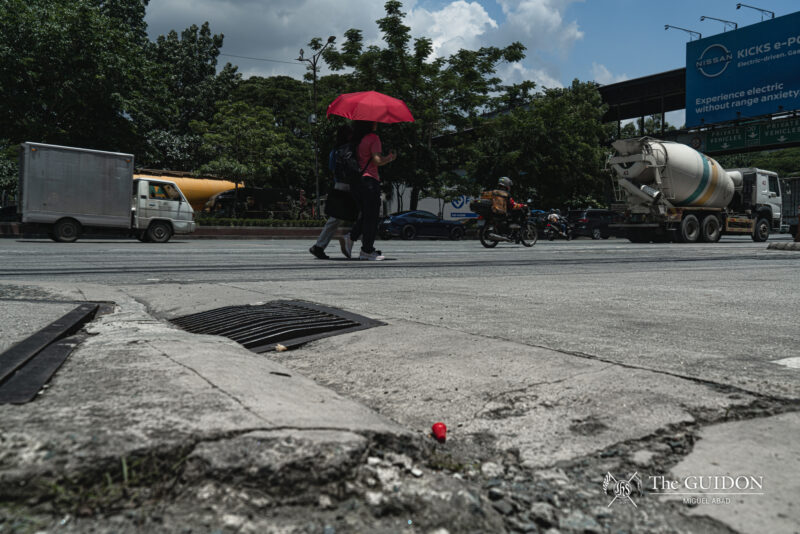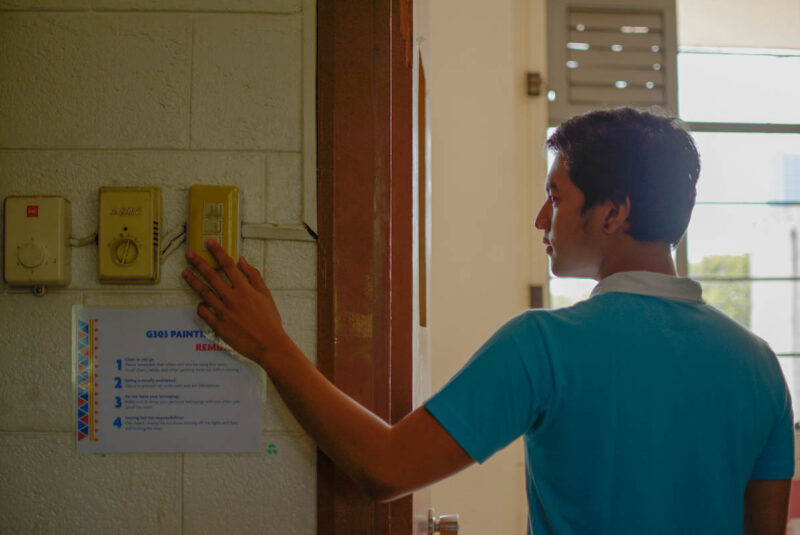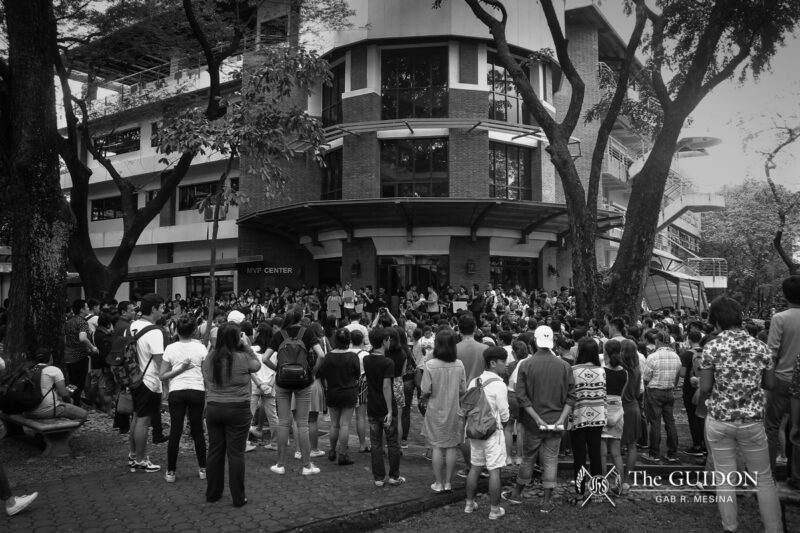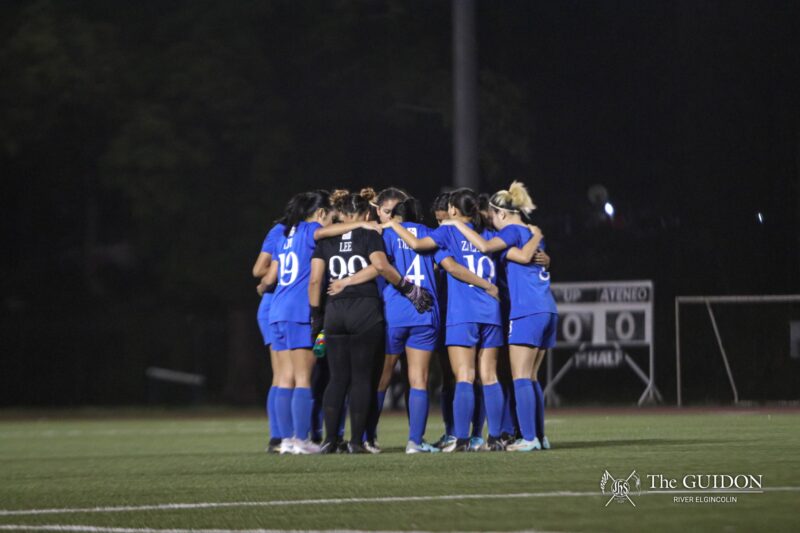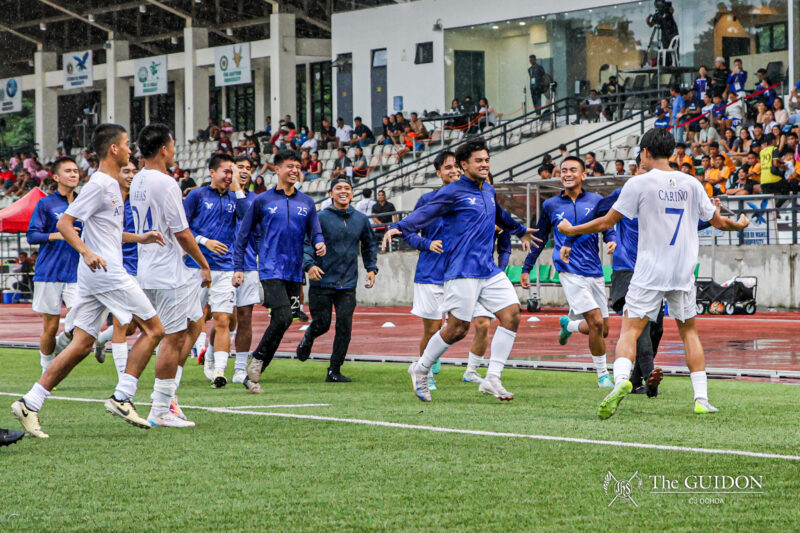Although Alexis* is of voting age, she did not bother to register for the upcoming elections. She thinks that it unimportant because the same faces are running for the same positions.
“It’s going to be just the same. Nothing’s going to change if we don’t remove the [same] people,” she says.
Alexis is one of 34 million potential Filipino voters who belong to 18-35 year old bracket. This group comprises 54% of the 63 million voters who are eligible to vote—a sizable block that may make or break the 2010 elections, whether they are aware of it or not.
Movers and shakers
The Commission on Elections (Comelec) began voter’s registration on December 2, 2008 and ended it on October 31, 2009. After the eleven-month registration period, 14% of the expected youth block did not register. According to Comelec, 5.1 million of registered voters fall in the 18-21 years old bracket.
Kabataan Partylist Representative Raymond “Mong” Palatino believes that these 5.1M youth votes can dictate the future of the country. Fernando Poe Jr. was a million votes shy from President Arroyo in 2004. Former President Ramos won the 1992 elections by a margin of 200,000 votes over Senator Miriam Defensor-Santiago.
Palatino is not alone in believing in the importance of youth participation. Ateneo School of Government (ASoG) Youth Leadership and Social Entrepreneurship Director Harvey Keh mentions youth support in Isabela Governor Grace Padaca’s success in the 2007 election against then re-electionist Faustino Dy.
An article in GMA News.tv quoted Keh saying, “[Padaca] didn’t have the clout and money. But the young people joined her fight.”
Keh likewise emphasizes the participation of university students across the country during the impeachment of former President Estrada in 2001. ASoG Leadership Program Staff Maricel de Guzman believes that youth’s active political participation contributed a lot to EDSA II.
“We were there in EDSA and students wearing different uniforms were also there. They were organized, they actively participated in the rallies,” she says.
“Ewan ko, bahala na”
Like Alexis, sophomore Michelle* has no plans of voting in 2010. Michelle registered—but only because it is worth 80 points in her NSTP.
Michelle says she wants to vote, especially with the proposed automated system. However, her family’s “boycott” of the elections stops her from doing so. She doesn’t recall her parents ever participating in elections.
Alexis’ parents have a similar attitude. When her father asked her mother whom she was voting for, she answered, “Ewan ko, bahala na” (I don’t know, I don’t care).
“Mom even left some [fields on the ballot] blank,” she says. “Seeing [that] your parents don’t really bother or care [makes you feel the same]. But I’m not blaming them… politics is such a dirty business.”
Again and again, apathy
While Michelle and Alexis claim not to participate in the election because of the influence of family, out-of-school youth and night club worker Christy* admits she does not see the point of elections. “I’d rather sleep than walk to voting stations,” she says in Filipino.
Political Science Instructor Anne Lan Candelaria, Ph.D. Cand., says that people only participate in democratic exercises if they see the point of the event. But she says that people should vote no matter what. “What they do not realize is that their laziness will affect the happenings in our country in the next few years.”
Moreover, Candelaria thinks that the youth who are not taking the elections seriously just have not realized the meaning of the event yet.
Michelle provides another reason for her non-participation: loss of trust in the process. Nationwide cheating makes her feel skeptical about elections.
Political Science Instructor Maria Elissa Jayme-Lao, Ph.D. Cand., says that voting equates to one’s proclamation of trust in the credibility of the entire process up to the counting of ballots.
“But some people have lost trust in the entire system as a whole. For some of them, [election is] a dead culture. It’s hard to get people to be excited to vote in an organized manner,” says Jayme-Lao.
Keh says that social status contributes to apathy of the youth. According to him, these people in the “comfort zone” are selfish because they are not willing to sacrifice even a little for the country and the millions of Filipinos.
Change will come
Unlike Alexis and Michelle, sophomore Jan Lapinig—who has registered a long time before the deadline—believes that the youth should participate in the elections so the country can “surpass its ‘Dark Ages.’”
Candelaria affirms that Lapinig’s reason to vote is felt by many youth. “You have been the product of the failures of the older generation.”
Faulty public health services, poor urban planning, and massive migration resulting to dysfunctional families are some of the mistakes that motivate the youth to seek for change, says Candelaria. Keh agrees that these mistakes from the past can—and should—catalyze youth’s participation in 2010.
Emphasizing that the upcoming election is a chance for Filipinos to decide the fate of the country for the next six years, Keh says that Filipinos must not waste this chance. He says that currently other Asian nations such as Thailand and Malaysia are ahead of the Philippines and Vietnam is catching up. In addition, “Obama-magic” has showed Filipinos that change is still possible.
Palatino agrees. “The youth is now looking for a leader… [whose] plans for change are clearly articulated,” he says.
Candelaria thinks otherwise. She says that youth mobilization has been happening since the 1960s. She says, however, that it is still “magical” to see the youth gather and demand for something from government. “It is the magic of democracy.”
School efforts
Lapinig and Alexis appreciate the efforts instigated by the different sectors of Ateneo. “It is good that there are efforts to go down the grassroots, only this time for the apathetic ones,” says Lapinig.
He considers Task Force 2010 and Reg2Vote as among the most influential initiatives in Ateneo. “I believe the symposia made the Ateneo community better informed about the politics.”
Likewise, University of the Philippines student Mark Baldo believes that many small initiatives in their university help people realize the importance of elections.
Alexis, who is not registered, says that the YouTube video, entitled “Don’t Vote” and featuring prominent Ateneans made her feel guilty that she did not register.
“The video says don’t vote if you don’t care about life, about education, and such. This is making me think [that] maybe I should really vote,” she says.
New media, peers
Aside from initiatives at the micro level, Palatino says that “new media,” such as cellphones, television, and the Internet, are very effective in conveying information to the youth.
Both Candelaria and Jayme-Lao believe that Facebook, Multiply, Ako Mismo!, Youth Vote Philippines!, Boto Mo, I-patrol Mo!, and the like were able to convey their messages because they tapped the media of the youth.
“[The youth] can’t help but feel special to vote because of these,” Jayme-Lao says.
But even without these media campaigns, University of the Philippines student Kenneth Fernandez believes that political awareness and action could be started within one’s circle of friends. “I am also trying to get my friends ready to vote by [talking about politics],” he says.
Though she believes that media have a really great influence because of its scope, De Guzman agrees with Fernandez that first-hand information can be really helpful.
“I think we should start conversing with other people [on politics]. Debates are okay. A debate would inspire you to gather more information,” she says.
At the end of the day, De Guzman admits that universities, media and other people can only bombard the youth with promotions.
The final decision to move lies in the youth.
* Name has been changed to protect the individual
What do you think about this story? Send your comments and suggestions here: tgdn.co/2ZqqodZ


